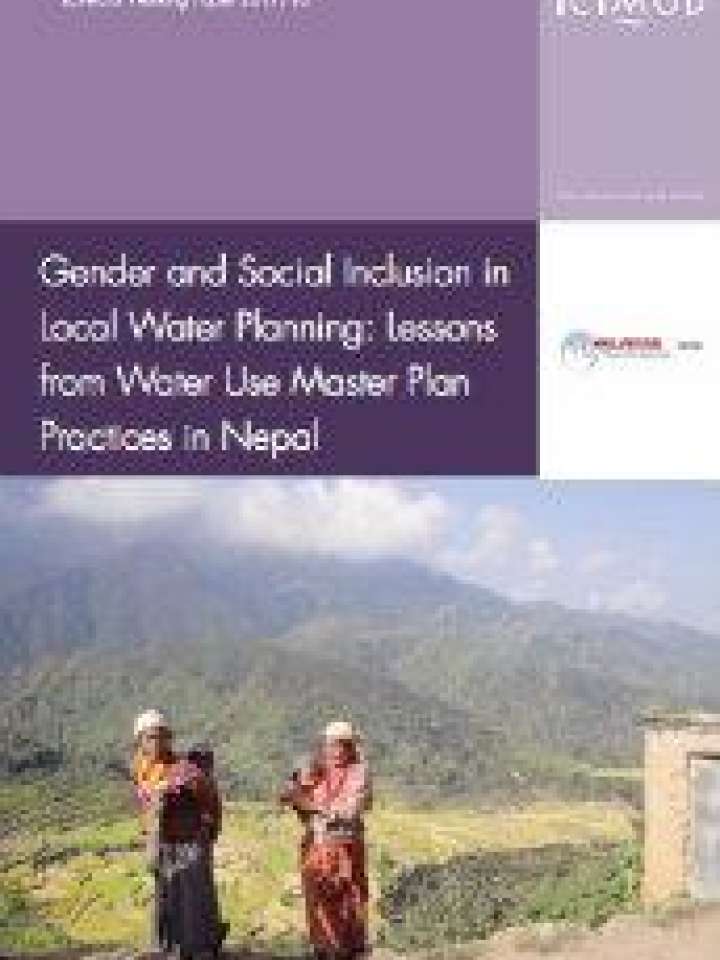Gender and social inclusion in local water planning: Lessons from water use master plan practices in Nepal
This paper evaluates the use, formulation and planning of Water Use Master Plans (WUMP) and their capacity to promote gender and social inclusiveness in water management at the local level in Nepal. It looks for areas in need of improvement in terms of integrating gender and social inclusion issues more effectively, within communities working to tackle water scarcity and water-induced disasters.
The findings of this study show that the WUMP process has promoted gender inclusiveness. This study was carried out in 2014-2016 with an intensive review of 12 WUMPs formulated in different parts of the country, followed by field studies in 5 village development committees (VDC) and districts where WUMP have been implemented. In addition, field studies took place in Sindhuli and Sindhupalchowk districts, where WUMP activities are being carried out under the HELVETAS/ICIMOD programme (2014-2016).
Explore further
